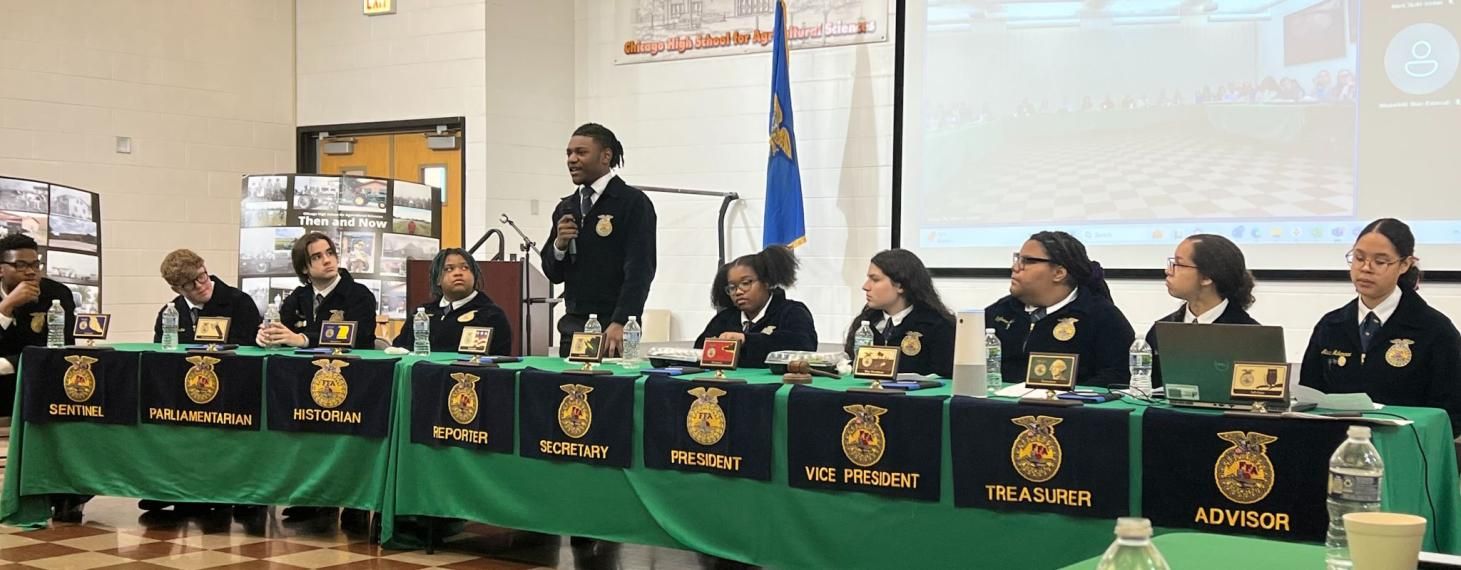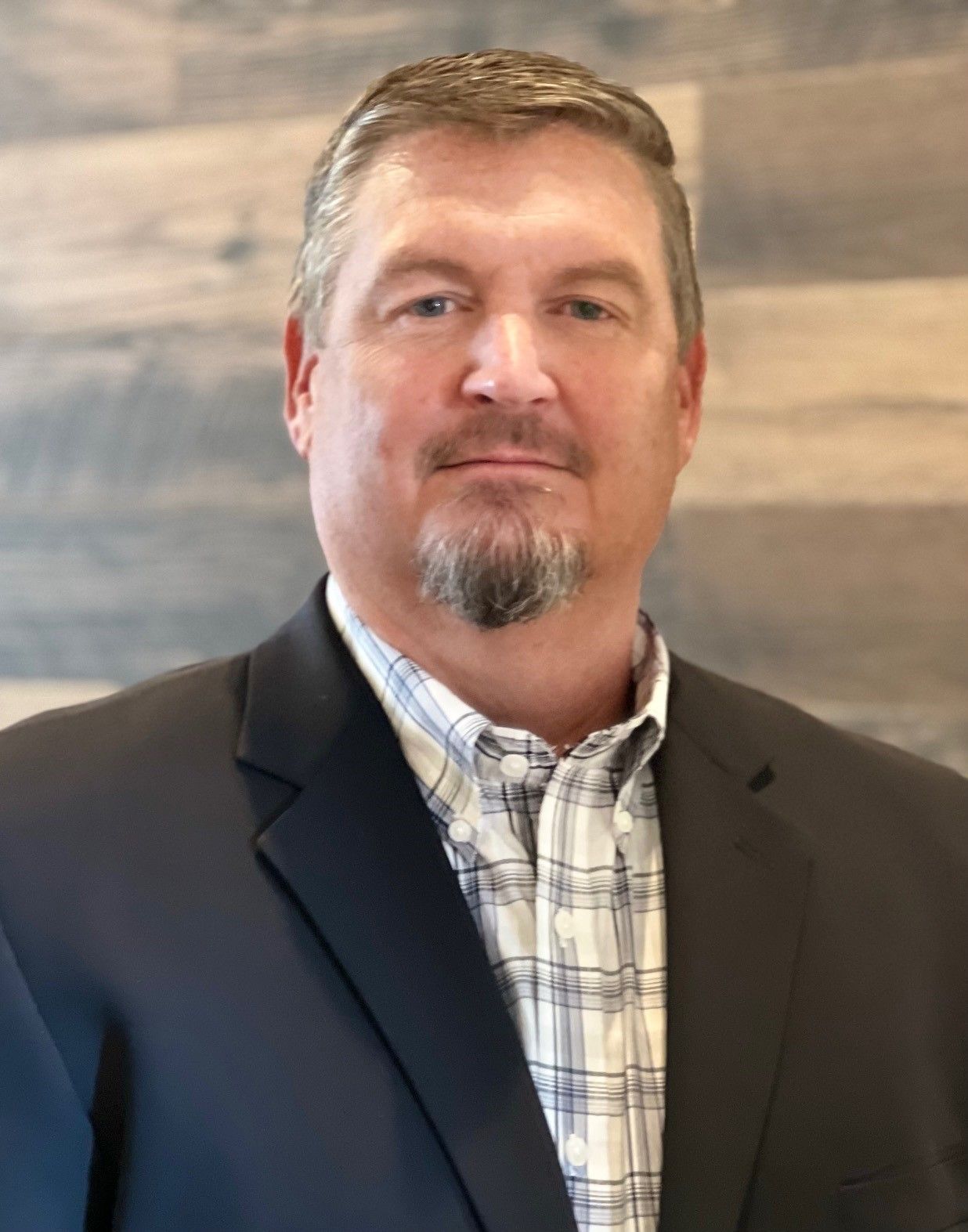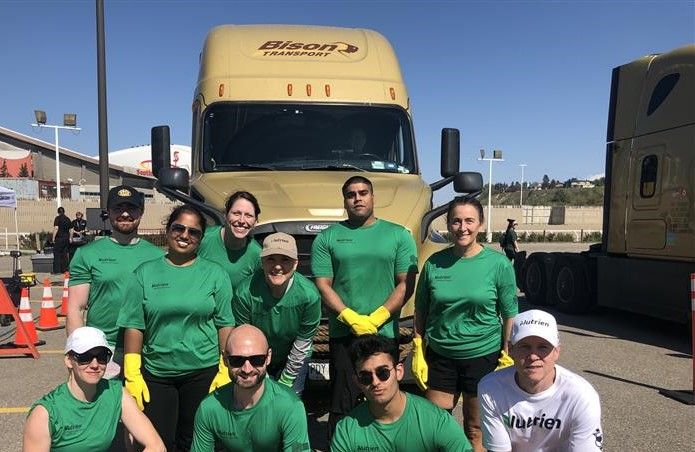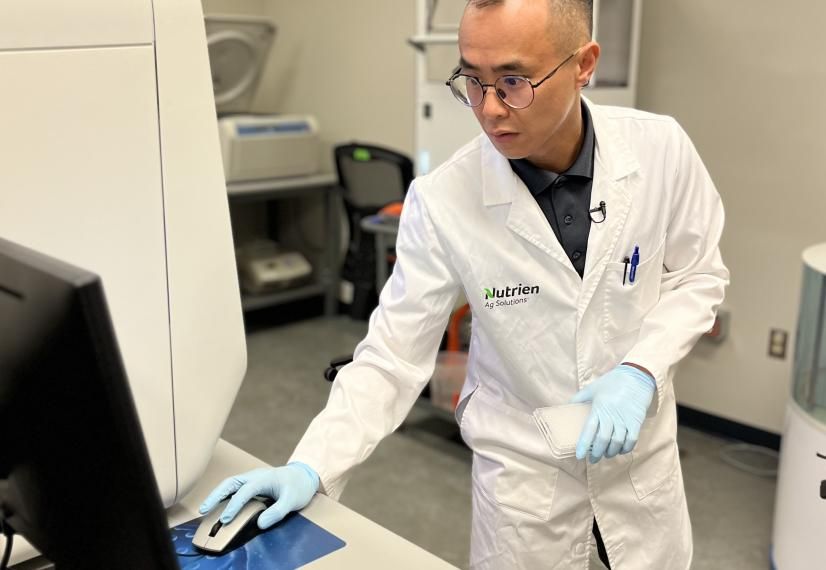
Spencer Harris | Inspired by the Future

Meet Spencer Harris, SVP of Global Retail Operations
What inspired you to pursue the career you have today?
I grew up on a livestock farm and learned early about a good work ethic and the challenges of growing up in that environment. I thought I would leave agriculture when I graduated from high school, but then I realized through college that this is the industry I love.
The people connected to agriculture are the best people to work with, and I’ve enjoyed a fulfilling career. Helping our customers feed the world is my North Star throughout my journey with Nutrien Ag Solutions.
What was the most rewarding part of the visit for you?
Of course, meeting and interacting with the students and their teachers. Being involved in FFA as a student was a terrific experience. It allowed me to leave my small community and participate in various soil and meat judging competitions. I felt honored to be asked to participate as a part of Nutrien. I also feel fortunate to have been exposed to FFA early in life and to know it is still growing. I just learned that the organization has reached a record 945,000 members. This visit reminded me that partnerships, like the one Nutrien has with FFA, provide a pathway for individuals to change their lives.
What did you learn from the students?
I was impressed and impacted to hear from CHSAS students that some have a long bus ride to school daily and leverage their education to escape tough neighborhoods and find a way to higher education or a prosperous career. They are finding an alternative path for themselves and changing their lives.
I enjoyed hearing the students’ stories, where they shared that their attendance at this school and involvement in FFA develop skills that will help them in life, like public speaking. It also has opened doors for them to “speak to people like you,” as one student said.
What did you learn from the educators?
When we met with Noelle Coronado, an Ag Finance teacher at the school, she shared her passion and her personal FFA story with us. She expressed the value students receive from engaging with industry professionals who can talk about their jobs and bring their learning to life. It expands their thinking and opens other possibilities for their future. It was impressive to learn that of the 58 educators, 11 were former students – truly a giving-back environment.
The tour taught us that the curriculum includes career and leadership development aligned with FFA. These are skills like critical thinking, decision-making, teamwork, communication and public speaking, ethical competition, and individual achievement. Students choose a focus, and their education is tailored to their interests.
After the tour and speaking with Noelle, I wished there were more than two of these schools in the United States.
What did you take away from this experience?
I enjoyed talking to the next generation of Ag leaders, and engaging with them in an academic setting helped me to understand what they are thinking when they think about Ag. Interacting with students from diverse and non-traditional Ag backgrounds is a powerful way to gain new ways of thinking.
This experience leaves me optimistic about the future and that our future is in good hands.
What do you like to do when you aren’t working?
I enjoy being outside with my family, hiking, gardening, and working in my yard. During the Colorado winters, when I can’t be outside, I like to restore antique furniture.
Related stories
Explore more about Nutrien

Sudeepta Mohapatra loves the thrill of the chase
In my role I track the global agricultural fundamentals that help in predicting short to long-term trends driving the future direction of the global agriculture industry. I also develop and update various economic models. These models are used to estimate and predict crop input expenditure in our [...]
Read more
Nutrien Releases 2023 Global Community Impact Report
Nutrien’s Community Relations & Investment (CRI) supports our business purpose by nurturing communities through collaborations with community partners who share our values and help us to make a positive and lasting impact in the communities where we operate. “While we share CRI data and stories [...]
Read more
Using DNA analysis to make more resilient crops
Did you know that Nutrien has a Genotyping lab? It’s located in our Canola breeding facility in Saskatoon, Saskatchewan. Employees like Li Tan, Lead, Molecular Biology, work in the lab to analyze DNA for specific genes within plants.
Read more